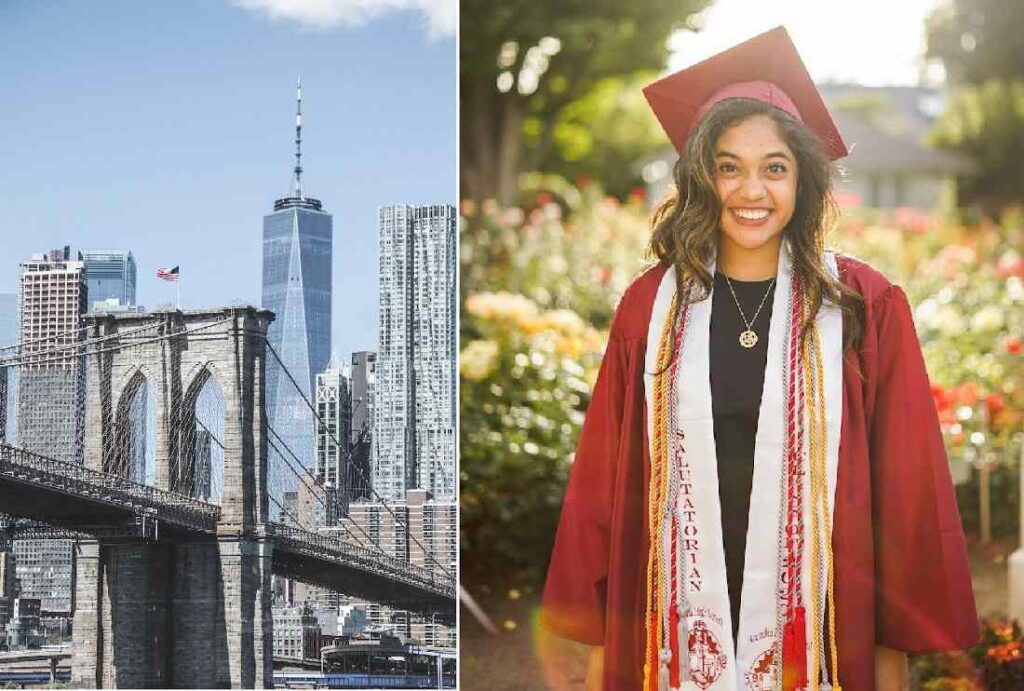
The United States of America has historically been a nation of immigrants. Currently, the United States is open to immigrants from other countries. The distant land of freedom, democracy, and progress opens wide prospects.
Material well-being, social security, career growth, and guarantees of rights and freedoms attract migrants. Immigration through education is a common and popular way to get to America. You can study at school, college, university, language courses, and professional education programs. However, it is worth mentioning that getting a student visa can be an ordeal. But if you try hard, student immigration is quite a real perspective.
What if there are some study issues
If you are lucky to immigrate to the USA, get ready for some challenges you may face while studying abroad. Firstly, you may feel homesick as people, food and even the weather is different from your home country. Secondly, the American education system has some unique features. Students sometimes worry about grading college papers or tough deadlines.
If a student has poor academic success, the visa can be canceled. As a result, students feel insecure when they need to submit essays or course papers to their professors. In this case, a nice option is to look for essay examples online. Free samples written by professionals help students get inspiration. If you know how to start daca essay for college, for instance, there is no reason to feel stressed. Moreover, it is a fantastic chance to improve your writing skills by reading the perfectly-outlined papers. A great database of essays is a guarantee that a student contract for grades is
always flawless and filled with only A-grades.
Most popular visa examples
The best option is an F1 study visa. It is issued to students who want to get an academic education at accredited educational institutions, such as:
- language courses (short-term courses of 2-6 weeks);
- colleges (programs up to 2 years);
- universities (preparatory courses, bachelor’s and master’s programs);
- educational institutions with summer programs for students;
- higher and short-term professional training courses.
According to the visa requirements, the student’s study load must be at least 20 academic hours per week. The F1 visa type entitles students to work 20 hours per week during term-time and full-time during holidays.
The validity period of the visa depends on the duration of the study program and is equal to the study period or 1 year (bachelor’s, master’s, or postgraduate programs). Annual visas are extended annually. The number of extensions is not limited.
After graduation, students can stay for 1 year under the Optional Practical Training program. It is a paid internship for students and postgraduates with F1 status aimed at consolidating knowledge and acquiring skills in the acquired profession. Students majoring in STEM undergo an internship under a specific OPT program. Its term is 24 months.
The J1 visa is issued to experts, cultural workers, researchers, and students who come to the United States on exchange programs. J1 holders are eligible to work legally. Unlike F1, this visa cannot be extended. After completing the exchange, J1 visa holders should return to their homeland or apply for a work permit. The internship is not provided.
The M1 visa is suitable for professionals who want to improve their skills in industry courses or learn a new technical profession. It is assumed that the applicant has already received an education. After completing their studies, M1 visa holders have the right to stay for practice.
Problems and consular issues when obtaining a student visa to the USA
Obtaining a visa to study in the USA is a time-consuming process. A common reason for refusal is the applicant’s unpreparedness for the interview. You should not advertise your desire to stay in the USA. On the contrary, it is better to prove a connection with the Motherland and a firm intention to return home. Show that you are in the US only for education.
Interviews at the consulate happen quickly. It is advisable to prepare in advance for possible questions. Visa officers have the right to refuse to issue a visa at the slightest doubt about the authenticity of the information without explaining the reasons for the refusal.
Conclusion
Immigration through education is a perfect match for students as it has no age restrictions. However, student visas are issued only to citizens of foreign countries enrolled in educational institutions. Admission rules and requirements for applicants in educational institutions differ. The higher the level of the educational institution, the more serious the requirements are. You will have to pass tests and exams and provide documents about your education. Besides, be ready to prove your ability to write a research paper and receive honest teacher comments for students’ writing.


